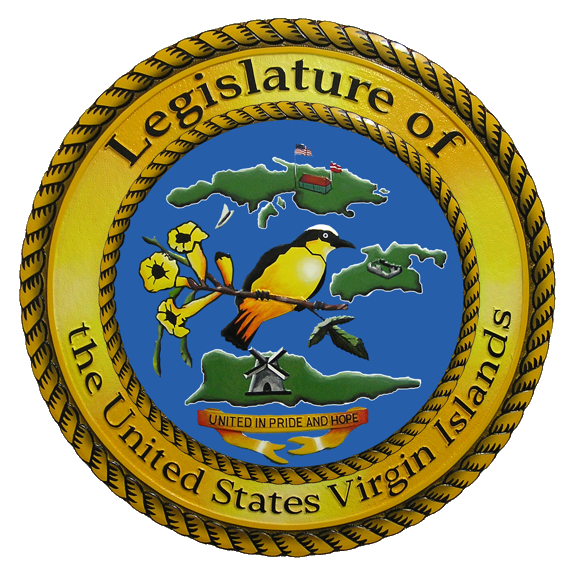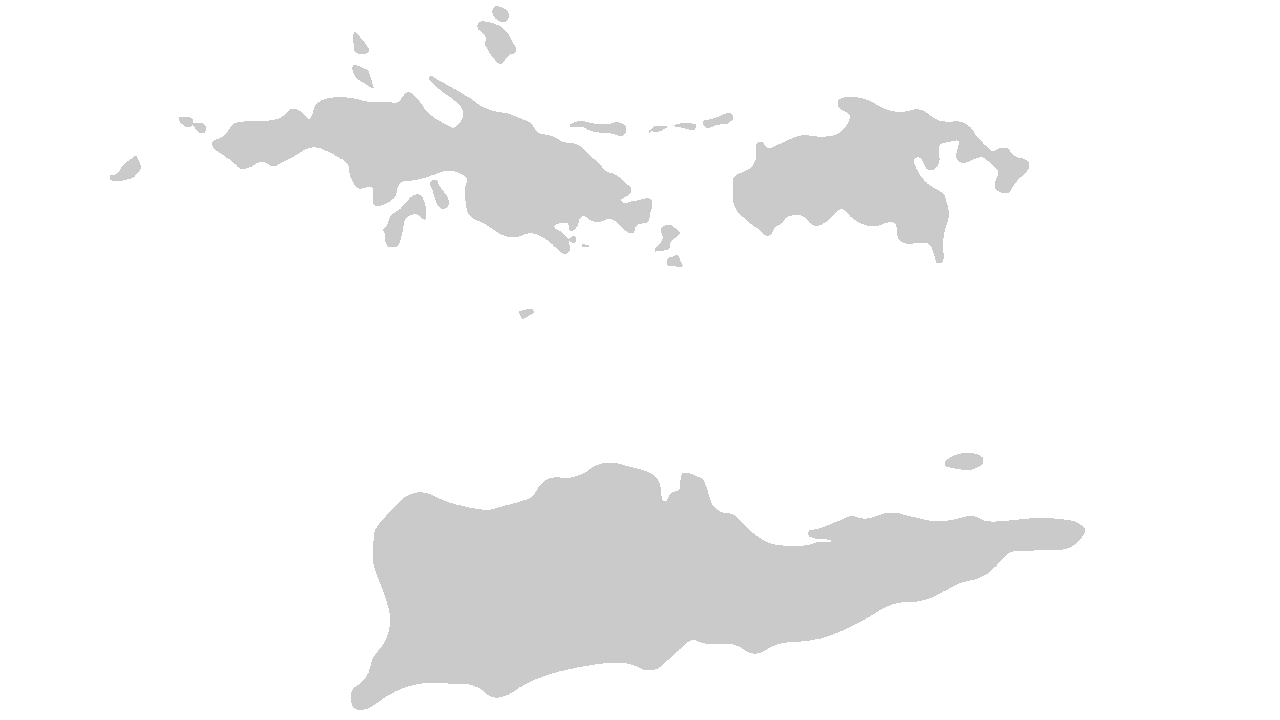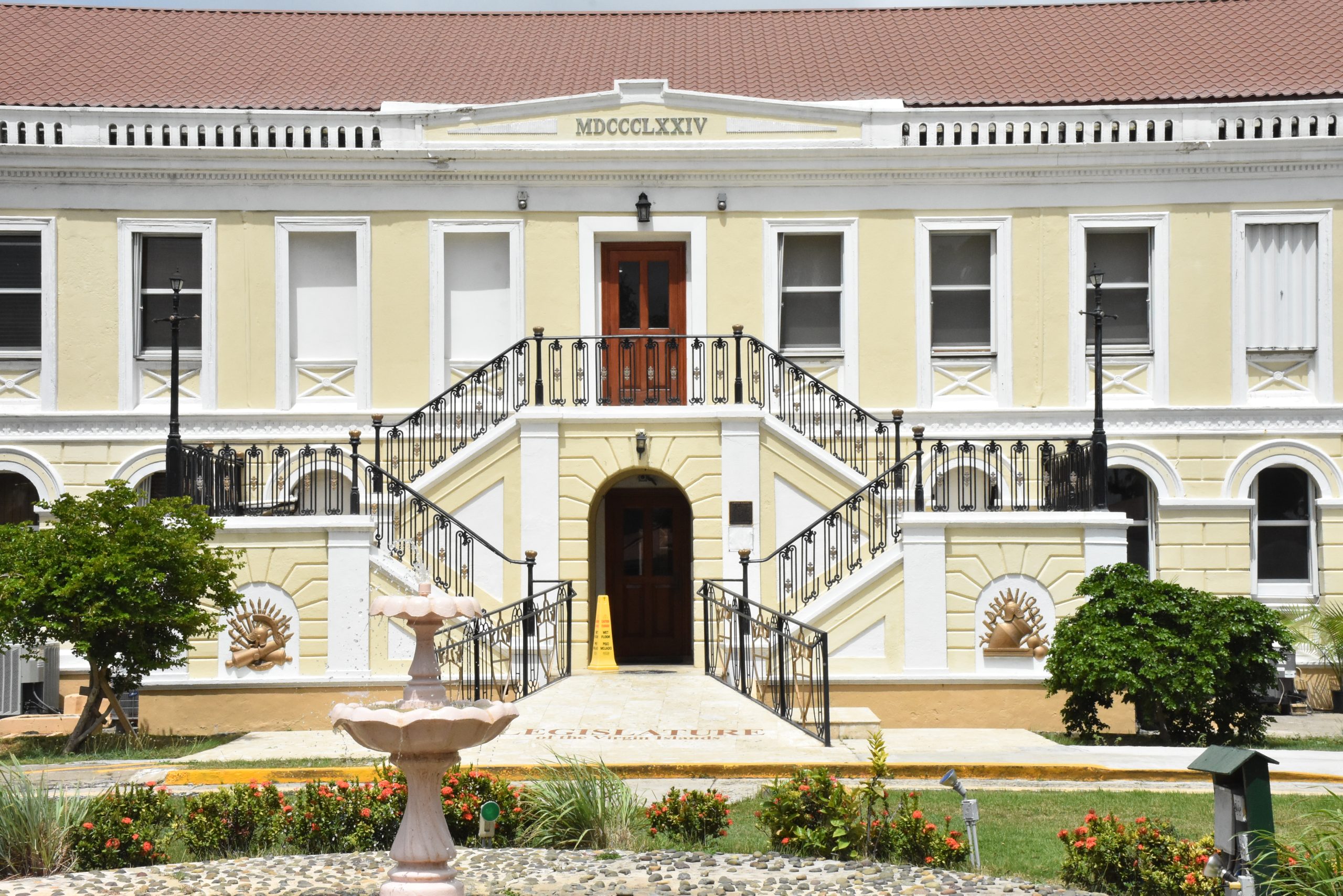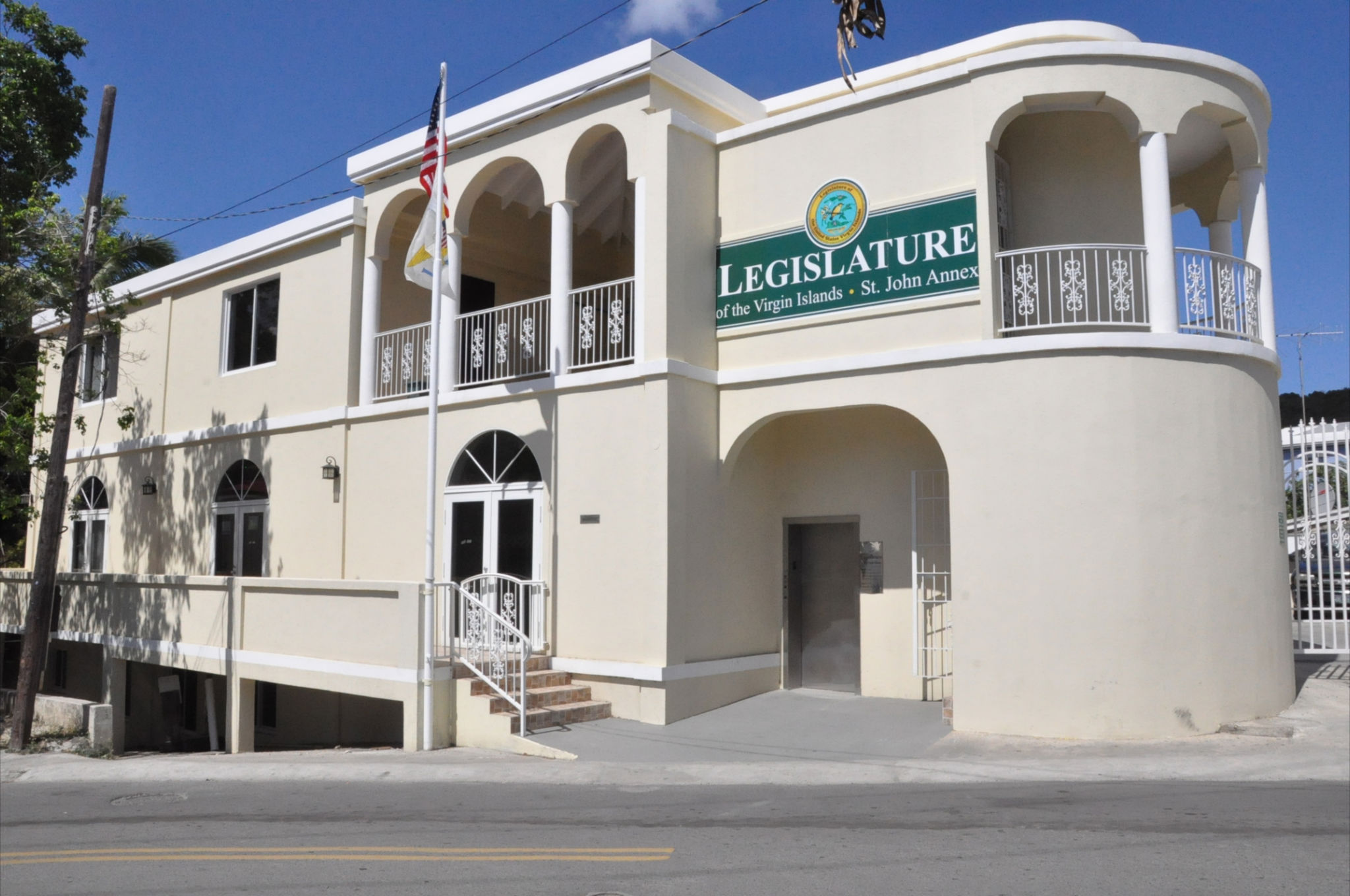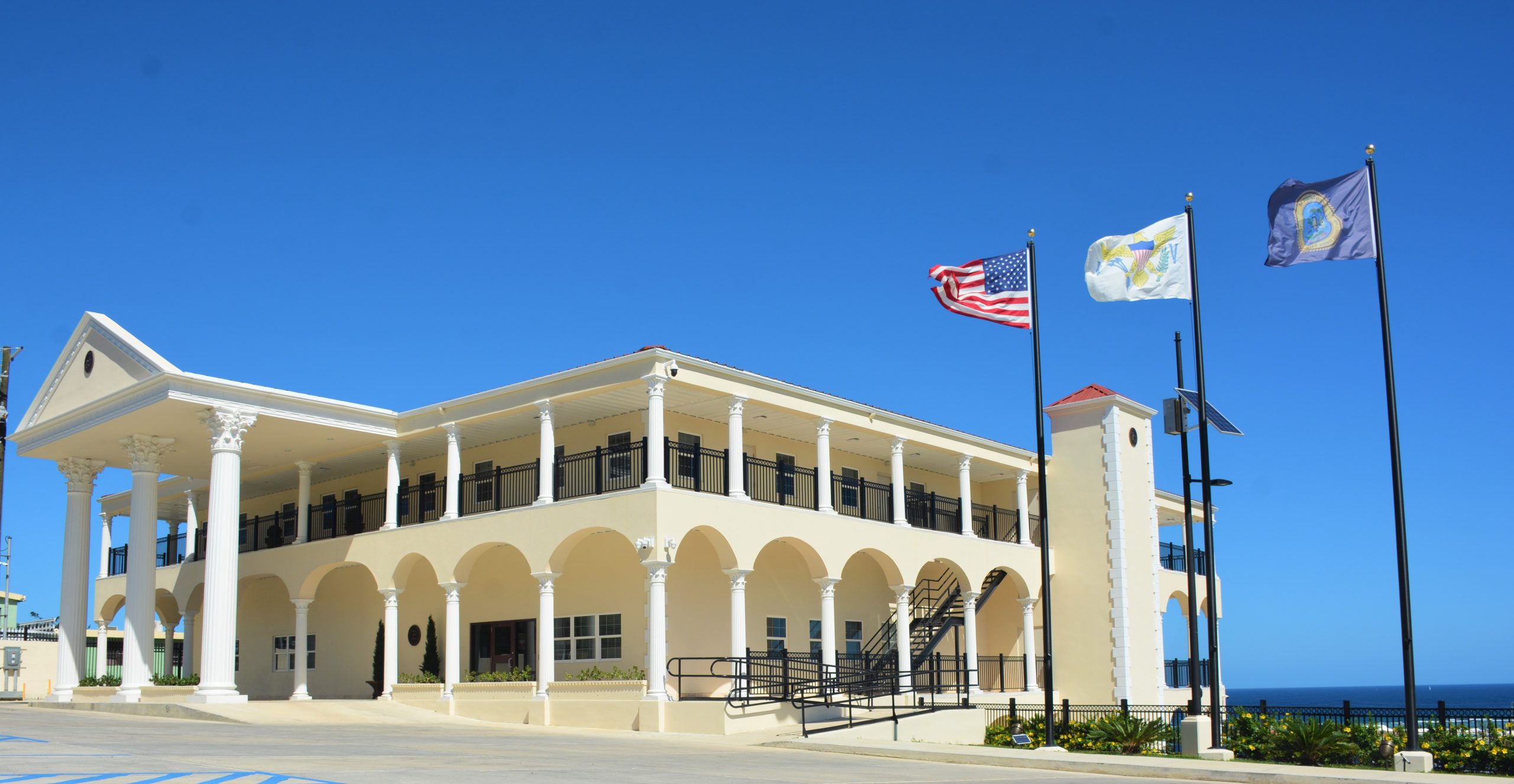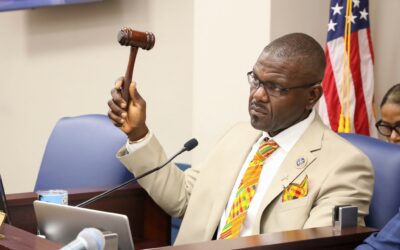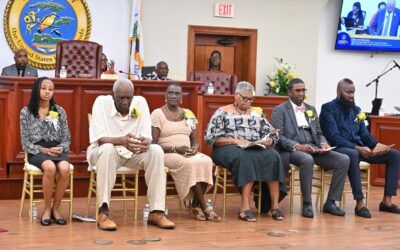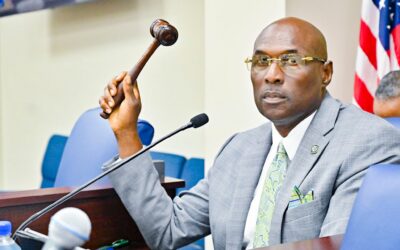News | Press Releases | Senator Alma Francis Heyliger | Senator Angel L. Bolques Jr. | Senator Carla J. Joseph | Senator Diane T. Capehart | Senator Donna A. Frett-Gregory | Senator Dwayne M. DeGraff | Senator Franklin D. Johnson | Senator Javan E. James Sr. | Senator Kenneth L. Gittens | Senator Marise C. James | Senator Marvin A. Blyden | Senator Milton E. Potter | Senator Novelle E. Francis, Jr. | Senator Ray Fonseca | Senator Samuel Carrión
LEGISLATURE HOLDS SPECIAL SESSION
Published: Apr 5, 2023
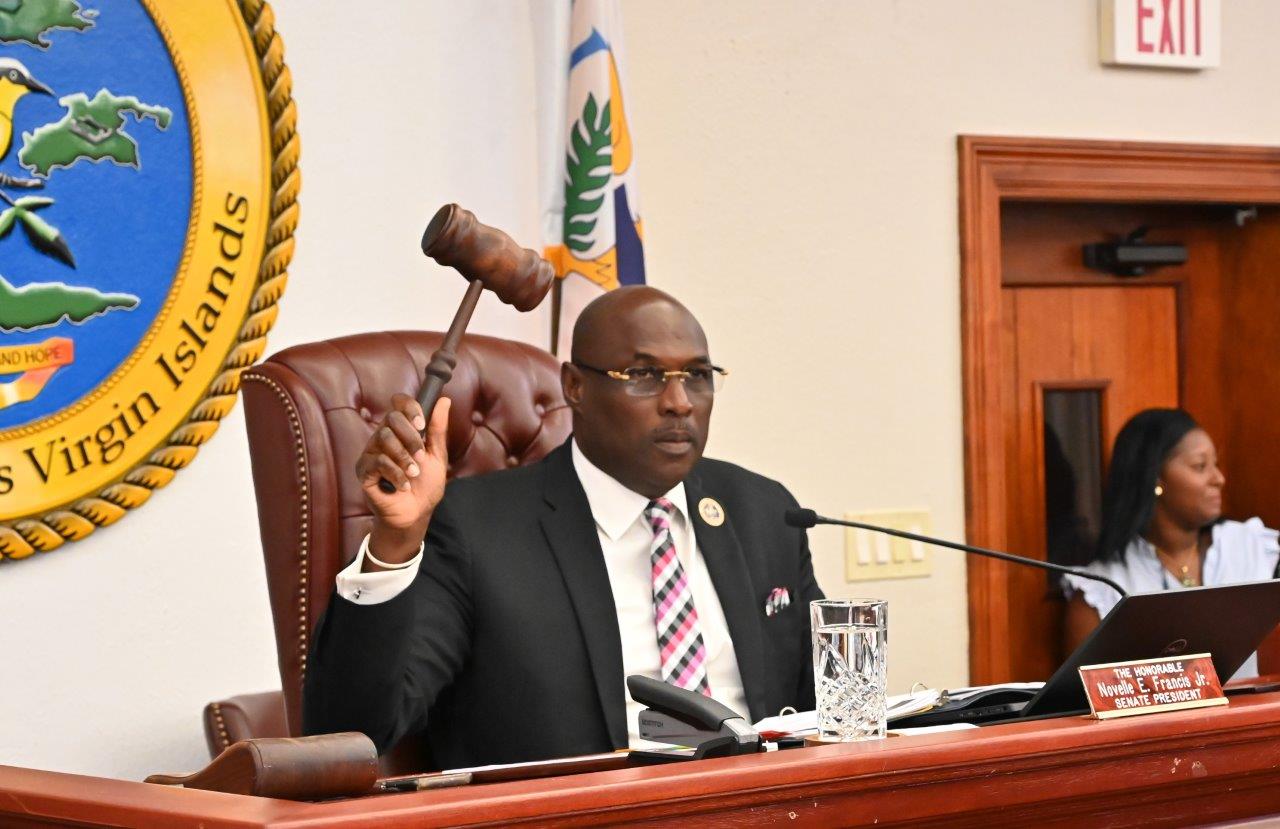
ST. THOMAS – The 35th Legislature of the Virgin Islands, led by Senate President Novelle E. Francis, Jr. Convened Wednesday, in a special session, called by Governor Albert Bryan. Pursuant to Section 7 (a) of the Revised Organic Act of 1954, as amended for the United States Virgin Islands, the Governor of the United States Virgin Islands can call a special session at any time.
The Legislature first convened into Committee of the Whole to receive testimony on the following:
Bill No. 35-0070, an act authorizing the Governor to utilize monies from public funds of the Virgin Islands to create working capital to provide funds for any purpose for which the Government is authorized to use and expend monies, including but not limited to, current expenses, capital expenditures, and discharge of any obligations of the Government for the next three fiscal years, beginning with 2023 and to issue a line of credit in the maximum amount of $150,000,000 and issue tax anticipation notes to provide funding for authorized governmental operations. The measure was sponsored by Senator Novelle E. Francis, Jr. at the request of the Governor.
Jenifer C. O’Neal, the Director of the Office of Management and Budget delivered testimony. Per O’Neal’s testimony, the Virgin Islands has been affected by numerous natural disasters, and stated that individually, each of these disasters would be major events in the life of Virgin Islands, which have and continued to affect the people of the Virgin Islands. Hurricanes Irma and Maria, some of the most impactful, which hit the US Virgin Islands in 2017 have been estimated to have inflicted more than $10 Million dollars. The effects of the COVID-19 pandemic have been considerably impactful on the nature of travel, tourism, and the workforce, and how work is performed daily.
O’Neal reminded the Body that there continues to be significant damage to infrastructure in the Virgin Islands. The Federal Government has made resources available to the community, expected to be received over the next five to eight years. These resources must be applied for and received and must work through the federal agencies involved. O’Neal stated that the Office of Disaster Recovery has over 1500 projects that were currently being tracked over the federal funding partners such as FEMA, HUD, the Department of Transportation, and the Federal Highway Administration. O’Neal mentioned that over one hundred projects spread through all the islands are specifically funded by FEMA Public Assistance (PA) and/or Hazard mitigation Grant Programs (HMGP), which total over $1.3 Billion dollars, $1.2 billion from FEMA PA and $163 Million from HMGP. According to O’Neal, the proposed measure proposed by the Honorable Governor Albert Bryan is an effort to allow the Government of the Virgin Islands, and its impacted agencies and authorities to jumpstart the numerous capital projects that have been approved by FEMA, which require funds for design and other start-up costs to get off the ground, while the projects work through the federal approval process.
With the support of the GVI, in December 2022, WAPA started negotiations with VITOL to address the suspension of fuel supply and to bring a resolution to the VITOL contract. The negotiations were successful, and the government is now seeking authorization to advance funds to WAPA with its negotiated payment to VITOL. Legislative approval is not required for WAPA’s VITOL Settlement. WAPA’s acquisition of LPG assets significantly reduces risk and cost to the territory because it would allow for a redundancy in WAPA’s fuel supply. It would effectively double the days of fuel in inventory and days that WAPA could operate without being resupplied without fuel. With full propane and diesel inventory, the St. Croix District would have over two months of fuel on hand, and the St. Thomas-St. John district would have over one and a half months of fuel, instead of 35 and 26 days of fuel on hand, respectively. According to O’Neal, propane infrastructure also benefits ratepayers. When fuel supply was interrupted in the end of November 2022, WAPA had to operate 100% on diesel in December, incurring excess fuel cost of almost $32 Million, or about seventy cents per kilowatt hour, which is forty-eight cents higher than WAPA’s current LEAC of 22 cents per kilowatt hour. O’Neal urged the body to act swiftly to approve the proposed measure.
Senator Alma Francis Heyliger voiced concern over the proposed measure, citing a report from the Inspector General, stating that previous projects proposed by WAPA, particularly propane conversion, had significant cost overruns, and voiced concern that the Governor could potentially undo budgets, and stating that she had not had enough time to properly vet the measure. Senator Franklin Johnson voiced additional concern, stating that the Government could not actually prove that VITOL spent the money that was appropriated to them. Of the proposed $150 Million, $45 Million would be expected to be utilized by WAPA to satisfy immediate debts with VITOL.
Senate President Novelle E. Francis inquired whether any austerity measures that could be undertaken to assist WAPA. Andrew Smith, Executive Director of WAPA stated that any funds spent were subject to extreme scrutiny, mentioning that 70% of costs at the authority were related to fuel.
Senators voted to hold the bill until the next scheduled legislative session.
Senators present at today’s special session included Novelle E. Francis, Jr., Marvin A. Blyden, Diane T. Capehart, Samuel Carrión, Dwayne M. Degraff, Ray Fonseca, Alma Francis Heyliger, Donna A. Frett-Gregory, Kenneth L. Gittens, Javan E. James, Sr., Franklin D. Johnson, and Milton E. Potter.
####
Related Content
COMMITTEE RECEIVES UPDATES FROM VIFEMS AND POLICE DEPARTMENT
ST. CROIX, VI – The 36th Legislature of the Virgin Islands’ Committee on Homeland Security, Justice, and Public Safety, led by Senator Clifford A. Joseph, Sr, met in the Frits E. Lawaetz Legislative Conference Room. Lawmakers received updates from the Virgin Islands...
COMMITTEE HOSTS PERMA PLAQUE CEREMONY FOR SEVERAL HONOREES
ST. THOMAS, VI - The Legislature of the Virgin Islands hosted a Permanent Plaque Ceremony at Earle B. Ottley Legislative Hall to formally recognize and commemorate individuals whose service, leadership, and contributions have left a lasting impact on the...
COMMITTEE VETS LEASE AGREEMENTS, MEASURE TO REDESIGN FUNDING SOURCES FOR SEVERAL ENTITES, MODIFY RENEWAL PROVISIONS FOR INSURANCE PRODUCER LICENSES, ESTABLISH “IMPAIRED DRIVING AND HIGHWAY SOBRIETY CHECKPOINT PROGRAM SAFETY FUND”
ST. CROIX, VI - The Committee on Budget, Appropriations, and Finance, led by Senator Novelle E. Francis, Jr. met in the Earle B. Ottley Legislative Hall. Lawmakers considered various lease agreements for the island of St. Thomas. Additionally, lawmakers vetted...
